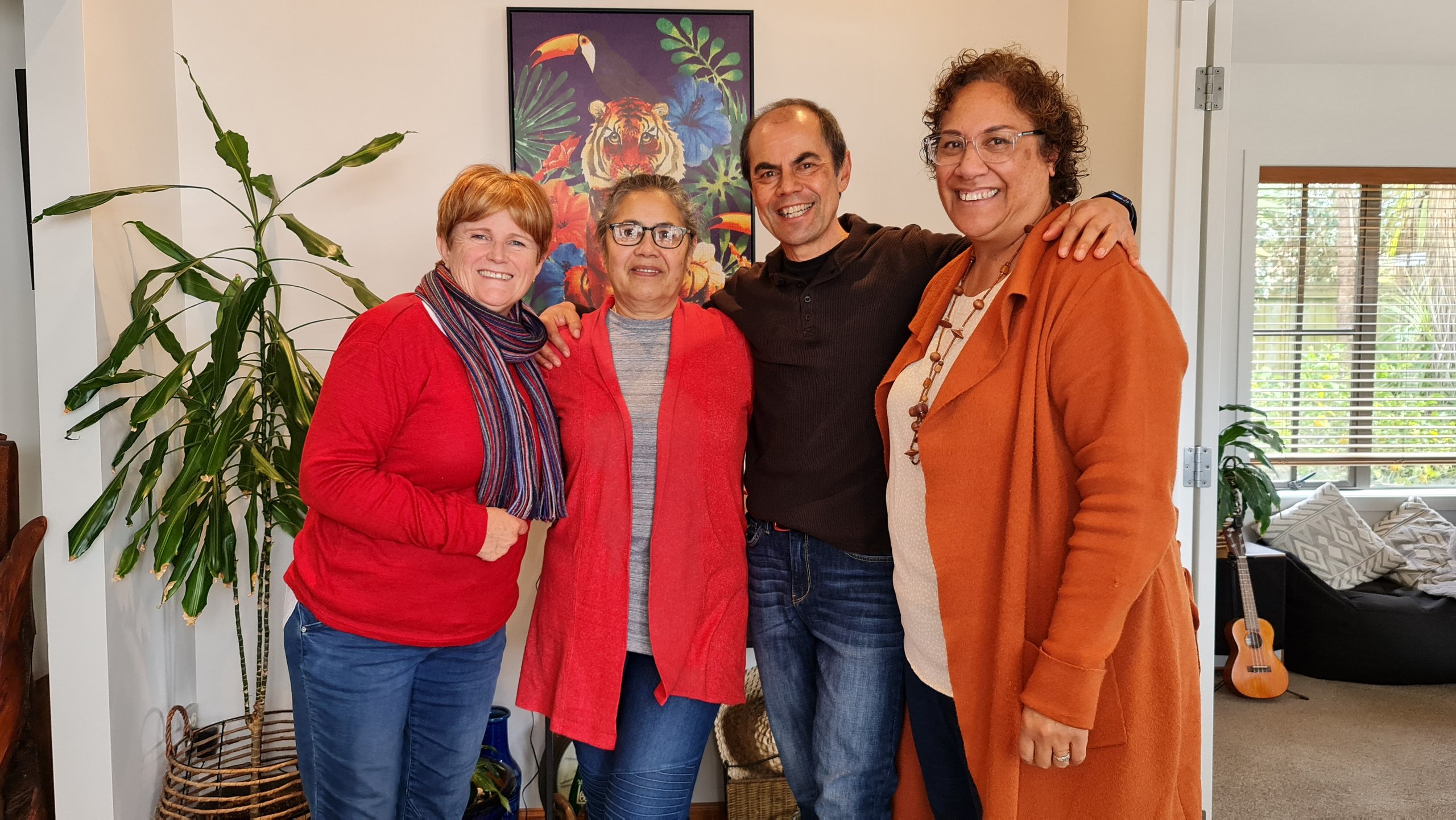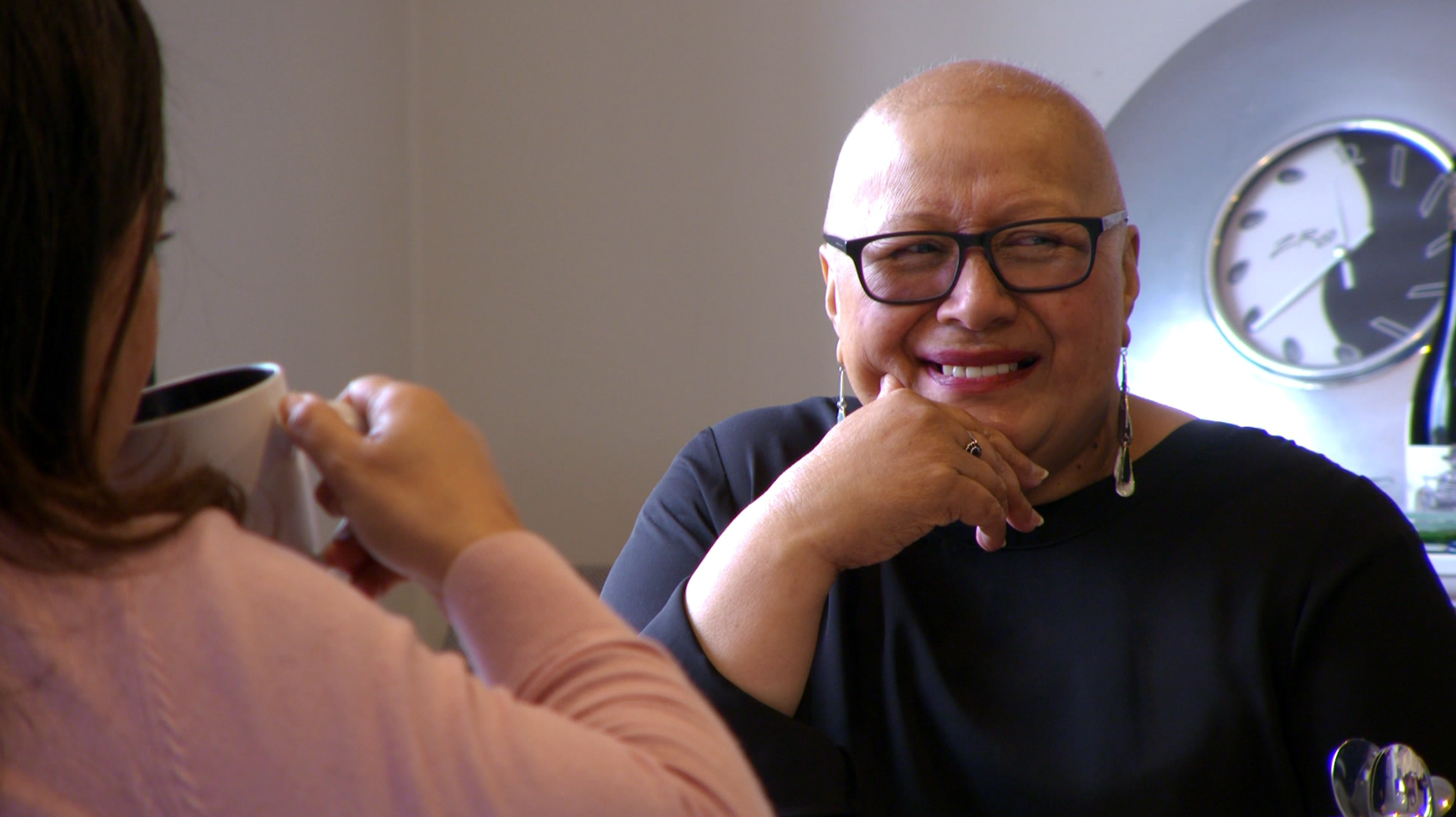Public Interest Journalism funded through NZ On Air

I struggled with how to approach this particular article about Pasifika journalist and publisher Innes Logan.
I’ve known Innes for a long time, not only have I had the chance to work at SPASIFIK magazine, I am related to Innes through our Samoa aiga; our mothers are sisters.
I also found it hard to tackle the subject of dementia as my late father was diagnosed with mild dementia in his mid 70s and suffered from it until the end of his life recently, at the age of 92.
So I was shocked to learn that earlier this year Innes, his wife Anne and their family went public about recently being diagnosed with Alzheimer’s disease, a form of dementia. And, at 56 years old at the time, Innes was classified as having Young Onset Dementia (YOD). I had assumed that dementia was something that only affected the elderly, not true.
Innes is a well known figure within the Pasifika media sector, a respected award-winning journalist who, alongside Anne, founded Oceania Media Ltd. Together they produced and launched the popular and successful SPASIFIK magazine in 2004.
As editor in chief, Innes had always been passionate about giving Pacific people a voice and sharing the stories of, not only the successes, but the issues that impact the Pacific community.
Anne says it is something that Innes has always strived to do through their media platforms, so it comes as no surprise that together they have been willing to share some of Innes’ journey after he was diagnosed with Alzheimer’s disease.
Speaking with TVNZ journalist Barbara Dreaver in August, the family shed light on the challenges of living with YOD as well as highlighting the importance of making the community aware of it and how vital resources are for families and people who are living with this condition.
Anne says it is important to talk about it.

“Everybody’s story is different and I think that’s what got me … is that, I started meeting people, and I do feel like we are very lucky that we have support at home and a supportive family and people, and we are all willing to talk about it and that Innes gets the opportunity to go along to support groups, because it’s key.”
Taking time to reflect on his illness, Innes says, “I think I have accepted that I’m not suddenly going to flick the switch off and everything and be right … so it’s been a couple of years, a few years. I’ve just accepted it and just try to be positive in terms of what I can do, and can’t.”
Having a positive attitude is what Innes focuses on when taking part in support programmes created for those who have YOD. He attends a living well group that was first created by families whose loved ones were diagnosed with dementia. The group does not receive any government funding and is supported via a Give-a-little page as well as from Auckland Dementia, and family and friends who volunteer their time with the group.
Anne says it is important for Innes to have the opportunity to be part of the living well groups.
“They get to meet like-minded people. There’s no shame, they’re patient with each other, they understand each other, which is important,” she says.

For those with YOD their spouses are likely to still be working and are likely to have young families and children to look after. Anne says the groups allow some respite for families who need a break but are also having to work to support the family.
It is a family affair for the Logans with Innes’ sister Heather Toki also volunteering at the living well programme. Heather says she is proud of Innes who is able to share his story with others in the group and says it does make a difference.
“They do talk about it to each other and they do say that it is nice to talk to someone who has dementia and they feel safe … and they just enjoy talking to each other and talking about it, being open about it.”
Innes’ older sister Jean Logan shared her experience going along with her brother to one of the living well sessions. “These people are amazing, they’re witty, they’ve got humour, and it is so important that they know they are loved,” Jean says.
Heather adds, “you do form bonds with them. They all just have love for the group, for each other because they often do talk about how they’ve got a great group.”

According to Auckland Dementia, 12 percent of people diagnosed with dementia are under the age of 65. Dementia can start as young as 40. There are several symptoms including loss of short term memory, changes in behaviour, changes in perception, poor sense of direction, getting lost, change of appearance, difficulty with speech and language.
The term is used to describe a range of symptoms associated with cognitive impairment. Approximately 70,000 people in New Zealand live with a diagnosis of dementia, affecting 1 in 20 people over 65 and 1 in 5 over 80. The number afflicted is expected to increase to 170,000 people by 2050.
And while dementia may not be a topic that is widely discussed among the Pacific community, Anne says it is important for Pacific families and communities who have loved ones with the diagnosis to know that they are not alone.
“If they were given the right information and the understanding of young onset dementia, what’s needed and where to go, whether they would feel less shame but more empowered … and we know what to expect, we know what we’re looking for, we know where to go, whether they could be more open to talking about it.”
A Pacific psychologist who works in the specific area of dementia for Pacific peoples says, another important factor to consider around Pacific peoples and dementia is the lack of diagnosis.

Dr. Etuini Ma’u says while there are some positive steps being made with research and the translation of information about Alzheimer’s and dementia in eight Pacific languages, he says more is needed.
“A lot of that research, and I’m part of that research, assumes that Pacific people are actually getting a diagnosis in the first place…and on top of that, we have things like the massive issues around stigma in our Pacific community, particularly when it comes to mental health, and dementia is no different,” Dr. Ma’u says.
He adds that we also need to focus on dementia prevention.
“We’ve shown that over half of dementia in Pacific people in New Zealand is potentially preventable if we can target things like heart health. So, you know, the classics; smoking, diabetes, obesity, exercise.
“So my take home message is, healthy heart, healthy mind, active body, active mind.”

As part of Budget 2022, funding was allocated to Te Whatu Ora dementia initiatives. The Aotearoa Tongan Health Workers Association was one of five organisations chosen to deliver a programme called māngalo (a Tongan term to describe the journey of a person living with dementia) that will be offered across the Auckland region that includes post diagnostic support, navigation and awareness raising for Tongan and Pacific People living with māngalo, dementia, their families and carers.
For Innes, Anne and the extended family, they continue to encourage more awareness and discussion around YOD. Anne would like to see initiatives like the living well programs developed throughout Auckland and the country.
“Purpose is important. They need to have purpose in their own life as well. Even if you are doing the very best for your person who has dementia and giving them all the care and catering for every need, it’s not enough.” she says.
“They need to be able to interact with the world and have opportunity and new things and speak to different people just like normal people.”
Anne says for Innes, it’s about living his best life!












